
Become a nationally qualified personal trainer
Become a Nationally Recognised Personal Trainer

SIS40221 Certificate IV in Fitness (Online)
You’ll first need to complete the SIS30321
Certificate III in Fitness
you’ll first need to complete the SIS[code] Certificate III in Fitness
Offer Ends 31st of October
You’ll first need to complete the SIS[code] Certificate III in Fitness
$36/wk for 32 weeks + $250 Upfront payment

Are you Ready to Become a Nationally Recognised PERSONAL TRAINER?
Complete the course to become a PERSONAL TRAINER with our course SIS40221 Certificate IV in Fitness.
Check the Course Overview Below:
SIS40221 Certificate IV in Fitness
Already have your Certificate III and ready to level up? Turn your passion for fitness into a rewarding career with the SIS40221 Certificate IV in Fitness. This nationally recognized qualification, developed by industry leaders, gives you the skills to design, deliver, and evaluate personalized exercise programs for a wide range of clients.
ENTRY REQUIREMENTS
Entry to this qualification is open to individuals who hold the following units of competency or units that have been superseded by these units:
- HLTAID011: Provide First Aid (or a unit that supersedes this unit)
- HLTWHS001: Participate in workplace health and safety
- SISFFIT032: Complete pre-exercise screening and service orientation
- SISFFIT033: Complete client fitness assessments
- SISFFIT035: Plan group exercise sessions
- SISFFIT036: Instruct group exercise sessions
- SISFFIT040: Develop and instruct gym-based exercise programs for individual clients
- SISFFIT047: Use anatomy and physiology knowledge to support safe and effective exercise
- SISFFIT052: Provide healthy eating information
Delivery Period
Learn at your own pace. 12 months to complete.
Expected Modes of Learning
Fitness online toolbox, electronic workbooks, real life practice
Payment
Upfront or payment plans available
Was $1,498, Now $899
$36/wk for 32 weeks + $250 Upfront payment

Are you ready to become a Nationally Recognised PERSONAL TRAINER?
Here's what you will get from Mark McGaw Institute of Sports Science:

100% ONLINE
Study on your schedule, wherever you are! Balance learning with work, family, and life. You must also have access to a gym.
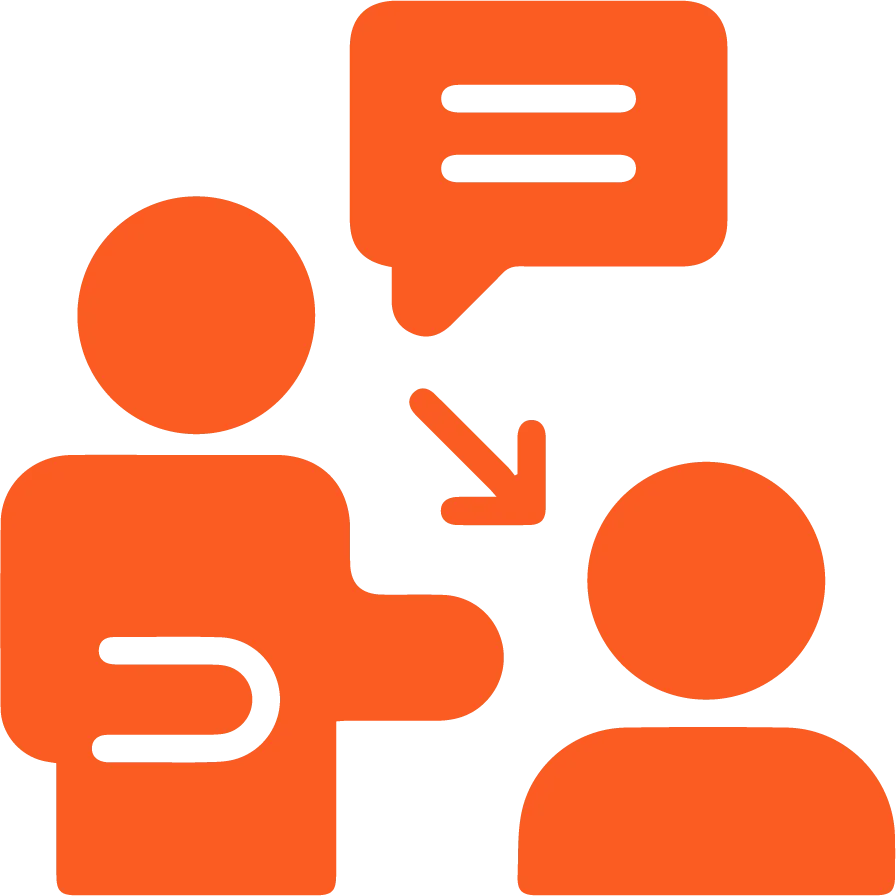
UNLIMITED STUDENT SUPPORT
Available via call, email, Zoom, and text! Guaranteed same-day or next-business-day response.

2 WEEKS MONEY-BACK GUARANTEED
Enjoy peace of mind with our 2-week money-back guarantee!

PAYMENT PLAN AVAILABLE
Payment plan is available to suit your budget!

LOWEST PRICE GUARANTEED
Get the lowest rates without compromising on quality.
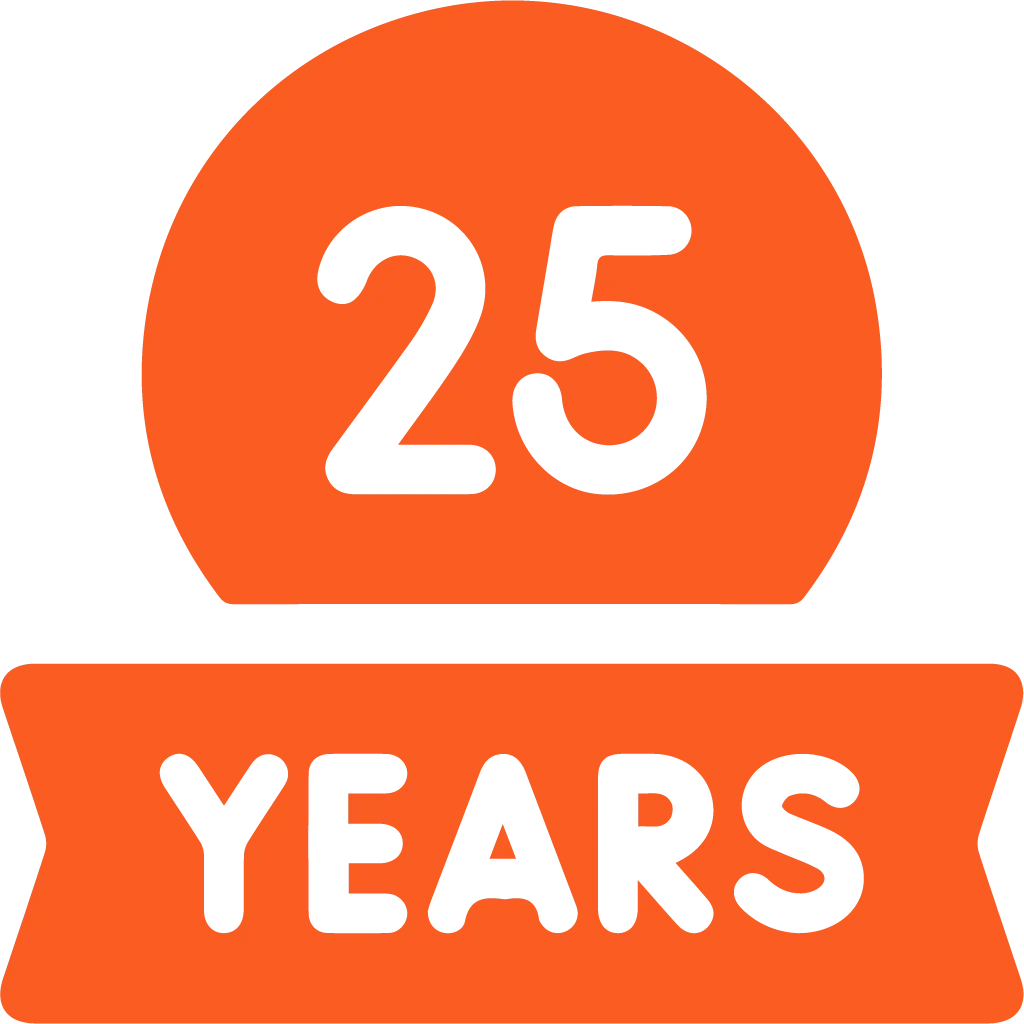
25 YEARS EXPERIENCE
Expertise you can rely on.

INTERACTIVE
Learn your professional fitness trade in a real-life & simulated environment.
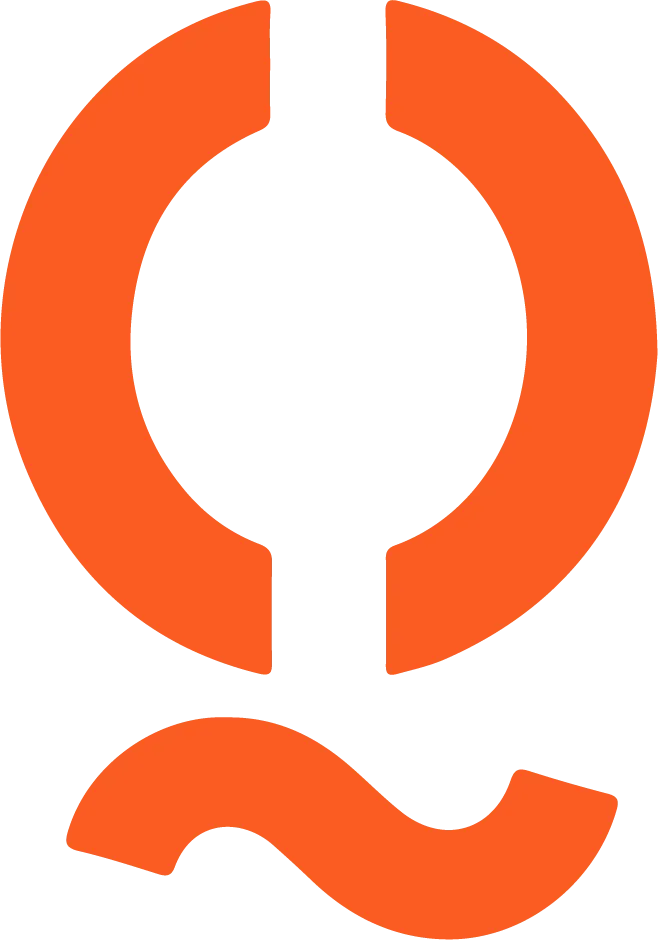
NATIONALLY ACCREDITED
We are a government accredited registered training organisation.
RTO No 91205.
Our Trainers & Assessors

Mark McGaw, former professional footballer and Gladiator, transitioned into fitness in 1995 by completing Australia’s only Fitness Trainer course. Inspired by a trip to the USA, where he attended the Arnold Schwarzenegger Bodybuilding Show and met the marketing director of a major fitness education provider, he introduced distance learning to Australia. He secured the rights to a course developed by Dr. Fred Hatfield, a record-breaking powerlifter and mentor.
With a passion for educating others using the latest research, McGaw has spent over 25 years training individuals in fitness. His football career included playing for the Cronulla-Sutherland Sharks, Penrith Panthers, and South Sydney Rabbitohs. He also represented New South Wales in multiple State of Origin series and played for Australia in the 1988 Rugby League World Cup Final.
McGaw gained further recognition as "Hammer" on Gladiators (1995–1996) and modeled for Lowes Menswear alongside other rugby league stars. He is the founder of the Mark McGaw Institute of Sports Science
Who is Mark McGaw?

NRL Career
Cronulla, New South Wales, McGaw’s journey in rugby league began with the Cronulla-Sutherland Sharks, a team with which he became synonymous. His debut in 1983 marked the start of an illustrious career that saw him become one of the most celebrated centres of his time. His playing style was characterized by a blend of speed, agility, and strength, making him a formidable opponent on the field.
Gladiators 2024 Channel 10
Nearly 30 years ago, back in 1995, Mark first graced our screens as Hammer, one of the original Gladiators. Fast forward to today, and he’s back in the arena, but with a twist – he’s the show’s new referee, keeping a keen eye on the rules. Mark, with a friendly yet firm approach, shares his wisdom with the contestants: “Remember to balance your dreams with what you’re truly capable of – and that’s a tip straight from an OG [Original Gladiator]!”
Don’t miss the excitement as the legendary Mark, our original Gladiator, steps into the arena once more in the new 2024 Gladiators show! Tune in from January 15th Channel 10 to catch all the action, drama, and heart-pumping challenges, with Mark at the helm as the dynamic referee.

Payment Plans Available
Flexible payment plans are available to suit your budget!
$36/wk for 32 weeks + $250 Upfront payment

The Mark McGaw Difference
Core Units | SIS40221 Certificate IV in Fitness
CHCCOM006 Establish and manage client relationships
This unit describes the skills and knowledge to establish and manage professional one-to-one relationships with clients in the context of providing an ongoing health service or intervention.
This unit applies to community services or health workers who have defined responsibilities to work independently with clients within broad but established guidelines.
The skills in this unit must be applied in accordance with Commonwealth and State/Territory legislation, Australian/New Zealand standards and industry codes of practice.
SISFFIT041 Develop personalised exercise programs
This unit describes the performance outcomes, skills and knowledge required to develop exercise programs and a series of sessions tailored to individual client needs, exercise preferences and fitness goals.
It requires the ability to integrate information from pre-exercise screenings, fitness assessments, and any medical guidance that may have been received for particular clients, to design suitable programs. Skills for instructing sessions are covered in a complementary unit.
Program design involves effective application of exercise science and training principles. This unit has a direct relationship with, and is supported by, SISFFIT049 Use exercise science principles in fitness instruction.
This unit applies to personal trainers who work independently with clients using discretion and judgement to develop individually tailored client programs. They practise in settings such as fitness facilities, gyms, leisure and community centres, client workplaces and homes and outdoor locations.
The skills in this unit must be applied in accordance with Commonwealth and State or Territory legislation, Australian standards and industry codes of practice.
No occupational licensing, certification or specific legislative requirements apply to this unit at the time of publication.
SISFFIT042 Instruct personalised exercise sessions
This unit describes the performance outcomes, skills and knowledge required to prepare for, instruct and evaluate pre-designed exercise sessions that have been tailored to individual client needs, exercise preferences and fitness goals, as part of an overall personal training program. It covers skills for modifying programs in response to ongoing client monitoring and feedback.
Skills for planning programs and sessions are covered in a complementary unit.
This unit applies to personal trainers who work independently with clients using discretion and judgement to prepare for and instruct exercise activities. They practise in settings such as fitness facilities, gyms, leisure and community centres, client workplaces and homes and outdoor locations.
The skills in this unit must be applied in accordance with Commonwealth and State or Territory legislation, Australian standards and industry codes of practice.
No occupational licensing, certification or specific legislative requirements apply to this unit at the time of publication.
SISFFIT043 Develop and instruct personalised exercise programs for body composition goals
This unit describes the performance outcomes, skills and knowledge required to develop and instruct exercise programs and sessions specifically tailored to meet body composition goals for individual clients. Goals may relate to body composition maintenance or change. It covers skills for evaluating and modifying programs in response to client monitoring and feedback.
It requires the ability to integrate information from pre-exercise screenings, fitness assessments, and medical guidance that may have been received for particular clients, to design suitable programs.
Program design involves effective application of exercise science principles. This unit has a direct relationship with, and is supported by, SISFFIT049 Use exercise science principles in fitness instruction.
This unit applies to personal trainers who work independently with clients using discretion and judgement to develop and instruct individually tailored client programs. They practise in settings such as fitness facilities, gyms, leisure and community centres, client workplaces and homes and outdoor locations.
The skills in this unit must be applied in accordance with Commonwealth and State or Territory legislation, Australian standards and industry codes of practice.
No occupational licensing, certification or specific legislative requirements apply to this unit at the time of publication.
SISFFIT044 Develop and instruct personalised exercise programs for older clients
This unit describes the performance outcomes, skills and knowledge required to develop and instruct exercise programs and sessions specifically tailored for individual older clients. Older clients are those aged at least 55 years; however, they can be significantly older. It covers skills for evaluating and modifying programs in response to client monitoring and feedback. Programs and sessions take account of the particular issues and risks for older clients.
It requires the ability to promote healthy ageing and integrate information from pre-exercise screenings, fitness assessments, and any medical guidance that may have been received for particular clients, to design suitable programs.
Program design involves effective application of exercise science principles. This unit has a direct relationship with, and is supported by, SISFFIT049 Use exercise science principles in fitness instruction.
This unit applies to personal trainers, who work independently with clients using discretion and judgement to develop and instruct individually tailored client programs. They practise in settings such as fitness facilities, gyms, leisure and community centres, client workplaces and homes and outdoor locations, depending on their role.
The skills in this unit must be applied in accordance with Commonwealth and State or Territory legislation, Australian standards and industry codes of practice.
No occupational licensing, certification or specific legislative requirements apply to this unit at the time of publication.
SISFFIT045 Develop and instruct personalised exercise programs for adolescent clients
This unit describes the performance outcomes, skills and knowledge required to complete pre-exercise screening and fitness assessments for individual clients aged thirteen to seventeen years, and to develop and instruct exercise programs and sessions specifically tailored for these clients. It covers skills for evaluating and modifying programs in response to client monitoring and feedback.
Programs and sessions take account of the particular issues and limitations for adolescent clients.
Program design involves effective application of exercise science principles. This unit has a direct relationship with, and is supported by, SISFFIT049 Use exercise science principles in fitness instruction.
This unit applies to personal trainers, who work independently with clients using discretion and judgement to develop and instruct individually tailored client programs. They practise in settings such as fitness facilities, gyms, leisure and community centres, client workplaces and homes and outdoor locations.
The skills in this unit must be applied in accordance with Commonwealth and State or Territory legislation, Australian standards and industry codes of practice.
No occupational licensing, certification or specific legislative requirements apply to this unit at the time of publication. However, individuals must receive formal clearance to work with adolescents through completion of a working with children check required in the relevant State or Territory.
SISFFIT049 Use exercise science principles in fitness instruction
This unit has a direct relationship with, and supports the following units involving the application of exercise science and training principles to program design:
SISFFIT041 Develop personalised exercise programs
SISFFIT043 Develop and instruct personalised exercise programs for body composition goals
SISFFIT044 Develop and instruct personalised exercise programs for older clients
SISFFIT045 Develop and instruct personalised exercise programs for adolescent clients.
This unit applies to personal trainers who work independently with clients using discretion and judgement to develop and deliver individually tailored client exercise programs. They practise in settings such as fitness facilities, gyms, leisure and community centres, client workplaces and homes and outdoor locations.
The skills in this unit must be applied in accordance with Commonwealth and State or Territory legislation, Australian standards and industry codes of practice.
No occupational licensing, certification or specific legislative requirements apply to this unit at the time of publication.
SISFFIT050 Support exercise behaviour change
This unit describes the performance outcomes, skills and knowledge required to establish current patterns of client exercise and support clients to make changes to optimise fitness outcomes, health and wellbeing. Support for behaviour change reflects evidence-based approaches and can be integrated into fitness assessment, program planning, instruction and evaluation.
This unit applies to personal trainers who work independently with clients using discretion and judgement to develop and deliver individually tailored client exercise programs, and to provide support to individual clients. They practise in settings such as fitness facilities, gyms, leisure and community centres, client workplaces and homes and outdoor locations.
The skills in this unit must be applied in accordance with Commonwealth and State or Territory legislation, Australian standards and industry codes of practice.
No occupational licensing, certification or specific legislative requirements apply to this unit at the time of publication.
SISFFIT051 Establish and maintain professional practice for fitness instruction
This unit describes the performance outcomes, skills and knowledge required to establish the industry context for fitness instruction work, develop collaborative relationships with medical and allied health professionals, and use reflective practice and critical thinking for ongoing professional development. It requires the ability to identify and evaluate evidence-based information for use in day-to-day fitness instruction activities.
This unit applies to personal trainers who work independently with clients using discretion and judgement to develop and deliver individually tailored client exercise programs, and to provide support to individual clients. They practise in settings such as fitness facilities, gyms, leisure and community centres, client workplaces and homes and outdoor locations.
The skills in this unit must be applied in accordance with Commonwealth and State or Territory legislation, Australian standards and industry codes of practice.
No occupational licensing, certification or specific legislative requirements apply to this unit at the time of publication.
SISFFIT053 Support healthy eating for individual fitness clients
This unit describes the performance outcomes, skills and knowledge required to identify individual client needs for healthy eating advice, and provide information that supports clients to establish healthier eating patterns. Information is based on the current Australian national dietary guidelines and associated resources which aim to promote optimal health and wellbeing for generally healthy people.
The unit requires the ability to recognise situations that are beyond the scope of practice for fitness instructors and to provide referrals to medical and allied health professionals with expertise to advise on nutritional needs.
This unit applies to personal trainers who work independently with clients using discretion and judgement to plan for and deliver exercise programs, and to provide support to individual clients. They practise in settings such as fitness facilities, gyms, leisure and community centres, client workplaces and homes and outdoor locations.
The skills in this unit must be applied in accordance with Commonwealth and State or Territory legislation, Australian standards and industry codes of practice.
No occupational licensing, certification or specific legislative requirements apply to this unit at the time of publication.
Elective Units | SIS40221 Certificate IV in Fitness
SISFFIT034 Assess client movement and provide exercise advice
This unit describes the performance outcomes, skills and knowledge required to assess movement capacity in individual clients and provide advice on exercises to achieve optimal movement and safe and effective exercise technique. While this assessment may be completed as a separate dedicated activity, outcomes and recommended exercises may then be integrated into overall fitness programs for individual clients.
Assessment and advice are provided to clients who do not have unstable health conditions, pain or injury identified through pre-exercise screening and fitness assessment. The unit does not include assessment for the purposes of providing advice or treatment of injury or disease. In this case the fitness instructor refers clients to relevant medical or allied health professionals.
This unit applies to personal trainers who work independently with clients using discretion and judgement to provide individually tailored client movement assessments. They practise in settings such as fitness facilities, gyms, leisure and community centres, client workplaces, and homes and outdoor locations.
The skills in this unit must be applied in accordance with Commonwealth and State or Territory legislation, Australian standards and industry codes of practice.
No occupational licensing, certification or specific legislative requirements apply to this unit at the time of publication.
SISXCAI011 Develop and deliver long term training programs
This unit describes the performance outcomes, skills and knowledge required to develop and deliver long-term training programs for individuals, groups, or sporting teams which are tailored to their physical capacity objectives. Objectives can be diverse in nature and may relate to personal fitness targets, or their targeted capacity to compete in future activities such as recreational events or sporting competitions.
Program design involves effective application of exercise science principles. This unit has a direct relationship with, and is supported by, SISFFIT049 Use exercise science principles in fitness instruction.
This unit applies to sport, fitness or recreation trainers, instructors and coaches who work independently using discretion and judgement to develop, deliver, evaluate and modify programs.
The skills in this unit must be applied in accordance with Commonwealth and State or Territory legislation, Australian standards and industry codes of practice.
No occupational licensing, certification or specific legislative requirements apply to this unit at the time of publication.
SISXCAI009 Instruct strength and conditioning techniques
This unit describes the performance outcomes, knowledge and skills required to use drills, exercises and activities to instruct individuals undertaking fitness programs in strength and conditioning techniques to achieve personal fitness goals.
This unit applies to fitness instructors and coaches who work in fitness and sport environments. Work is performed according to relevant legislation and organisational policies and procedures.
No occupational licensing, certification or specific legislative requirements apply to this unit at the time of publication.
SISXCAI010 Develop strength and conditioning programs
This unit describes the performance outcomes, skills and knowledge required to develop, implement and evaluate strength and conditioning programs. It focuses on the skills needed to develop programs to meet the needs of participants undertaking fitness programs to achieve personal fitness goals.
This unit applies to fitness instructors and coaches who work in fitness and sport environments. Work is performed according to relevant legislation and organisational policies and procedures.
No occupational licensing, certification or specific legislative requirements apply to this unit at the time of publication.
SIRXOSM003 Use social media and online tools
This unit describes the performance outcomes, skills and knowledge required to implement the use of social media and online platforms for organisational purposes. It requires the ability to identify the objectives for online communications, create and post relevant content to promote engagement with the organisation, and to engage professionally with customers.
It applies to individuals who work at an operational level. They use discretion and judgement to take responsibility for work outcomes but actions are guided by plans, policies and procedures, supervisors and managers. Although an operational function, it can apply to small business owner operators who are responsible for a range of functions.
This unit applies to self-employed individuals, and owners and employees of any type of micro, small, medium or large organisation that utilises social media and online tools for customer engagement including commercial, not-for-profit and government organisations.
No occupational licensing, certification or specific legislative requirements apply to this unit at the time of publication.
BSBESB401 Research and develop business plans
This unit describes the skills and knowledge required to research and develop business plans for achieving business goals and objectives.
The unit applies to those establishing or operating a business providing self-employment, as well as those establishing a new venture as part of a larger organisation.
No licensing, legislative or certification requirements apply to this unit at the time of publication.
TAEDEL414 Mentor in the workplace
This unit describes the skills and knowledge required to establish and develop a professional mentoring relationship with an individual in a workplace. It includes the skills and knowledge to plan and prepare for the mentoring, and implement strategies suited to the mentee, the workplace and the mentoring relationship.
The unit applies to workplace supervisors or other work colleagues who work under limited supervision and have responsibility for mentoring individuals in the workplace. This may include, but is not limited to, those who mentor an apprentice or trainee employed by, or undertaking a work placement within, an organisation.
No licensing, legislative or certification requirements apply to this unit at the time of publication
What our Students Say
Package for SIS30321/SIS40221
Certificate III & IV in Fitness is also Available!
Become a Gym & Group Fitness Instructor or a Personal Fitness Trainer & SAVE 49% OFF when you buy both courses!
Was $2,348, Now $1,199
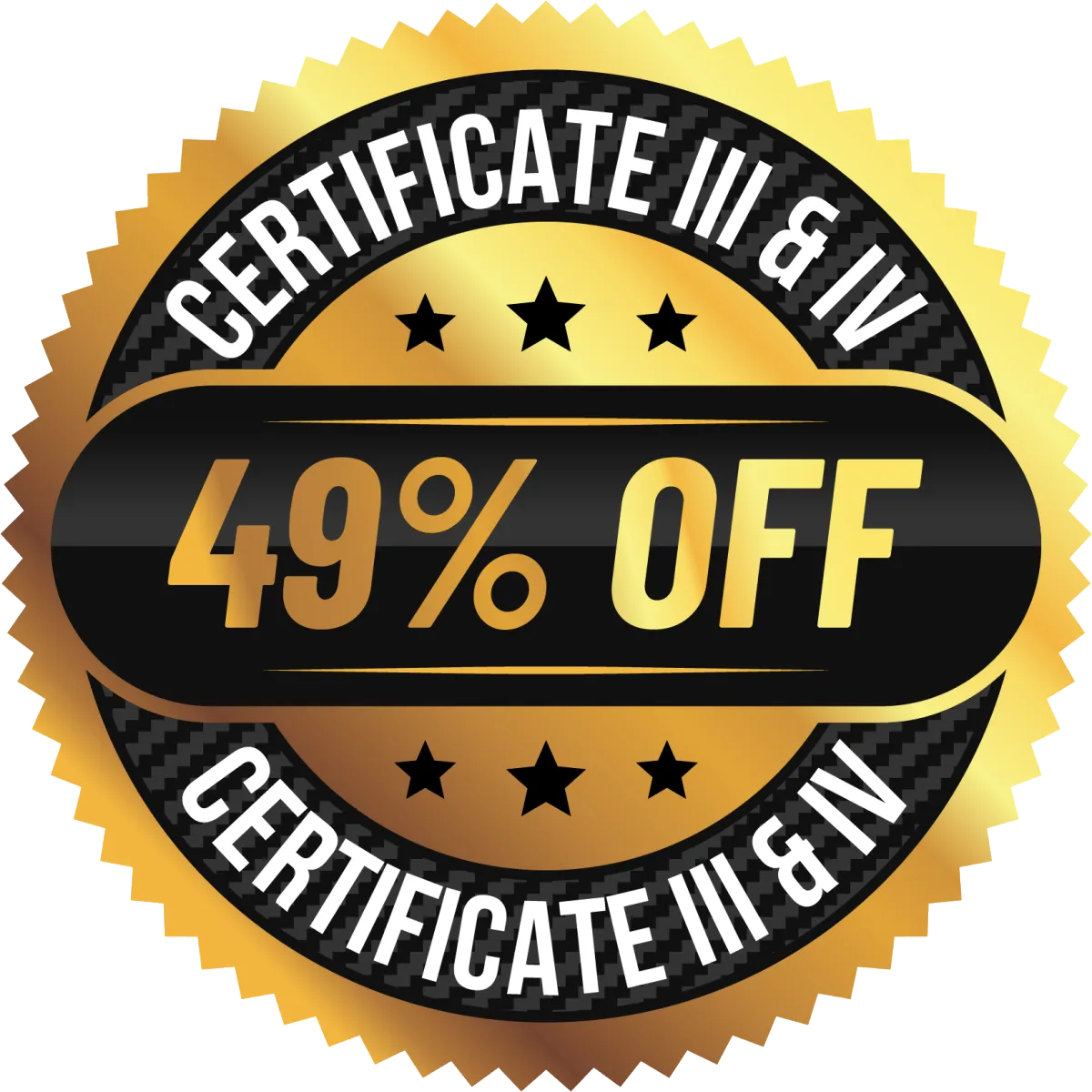
Frequently Asked Questions
How old do I have to be to enrol in SIS40221 - Certificate IV in Fitness?
To be eligible for enrolment in our courses, you must be at least 16 years of age.
If you are under 18 years old, a parent or guardian must sign your enrolment form to provide consent for your participation.
Why should I get qualified as a Personal Trainer at the Mark McGaw Institute of Sports Science?
To be the best, train with the best! The Mark McGaw Institute of Sports Science offers 100% online study, flexible payment plans, and unlimited student support, even on holidays, making it easy to fit learning into your schedule. With 25 years of industry expertise, interactive training, and the lowest rates available, you'll receive top-quality education without breaking the bank. Plus, enjoy a 2-week money-back guarantee and the option to study with a partner for added motivation.
What modes of study are available at the Mark McGaw Institute of Sports Science?
It's 100% Online, and you would also learn at your own pace. You have 12 months to complete each course (2 years). You will also need full access to gym equipment.
Are there any payment plans available at the Mark McGaw Institute of Sports Science?
Yes. We offer a payment plan. Please click here.
What are the Educational Requirements?
• You must have successfully completed Year 10 of school or its equivalent.
• Alternatively, if you do not have a Year 10 qualification, you may qualify with a Certificate II qualification or higher, or by demonstrating 2 years of industry experience in a role that requires the use of written documentation and communication skills.
Does this course have required Elective?
These units are compulsory core units for SIS40221 Certificate IV in Fitness
• SISXCAI005 Conduct individualised long-term training programs
• SISXCAI009 Instruct strength and conditioning techniques
• SISXCAI010 Develop strength and conditioning programs
• SISFFIT034 Assess client movement and provide exercise advice
• BSBESB401 Research and develop business plans
• BSBESB402 Establish legal and risk management requirements of new business ventures
• BSBXTW301 Work in a team
This is a Self-attained competency – You will be required to have completed the first aid component prior to any workplace.
What are the Documentation Requirements?
• Proof of age and educational background will be requested during the enrolment process.
• For applicants under 18, a signed parental or guardian consent form must accompany the enrolment form.
I've Sent my Enrolment Form, What do I do now?
• All enrolments are subject to review based on the provided eligibility documentation.
• If you do not meet the age or educational requirements, your enrolment may not be accepted or processed.
• Your payment will also be refunded.
Can I complete the course quicker than 12 months?
Yes
Here are some of the key reasons why some people complete online courses more quickly than others:
1. Time Management Skills
• Effective Scheduling: People who are good at managing their time can allocate consistent hours to study, avoid procrastination, and stick to a schedule. This results in faster progress.
• Prioritisation: Some individuals prioritise their courses and treat them like a job, ensuring they complete tasks quickly and efficiently.
2. Motivation and Goals
• Strong Motivation: Those who are highly motivated or have clear goals often work more efficiently and complete assignments quicker.
• Clear Milestones: People who set specific, measurable goals and timelines for themselves can stay focused and finish their courses faster.
3. Previous Knowledge and Experience
• Prior Knowledge: If a person has prior knowledge or experience related to the course content, they can move through the material faster because they may already understand key concepts.
• Related Experience: For example, someone with prior experience in the fitness industry may be able to breeze through parts of a fitness course compared to someone who’s new to the subject.
4. Learning Style
• Learning Style Preference: Some people are faster learners based on their preferred learning methods. Visual learners may absorb content more quickly through videos, while auditory learners might excel by listening to lectures. Hands-on learners may thrive in practical aspects and move faster.
• Active Learning: Those who actively engage with the material (through notes, quizzes, discussions, or teaching others) can often retain information better, speeding up their learning process.
5. Self-Discipline and Focus
• Consistent Focus: People with better self-discipline often complete their tasks without being distracted, leading to faster course completion.
• Minimal Distractions: Those who can eliminate distractions, such as social media, noisy environments, or multitasking, are able to focus better and work faster.
6. Support and Resources
• Access to Support: Learners who proactively seek support from tutors, classmates, or online communities can get answers more quickly, helping them complete assignments faster.
• Study Resources: Having access to extra resources (like books, videos, or guides) can also help people learn faster because they can reinforce or supplement what’s taught in the course.
7. Proactiveness
• Self-Starter: Some people are naturally proactive and begin the course immediately, completing sections ahead of schedule. They don’t wait for motivation to strike but take action regularly.
• Problem-Solving: When faced with difficulties, faster learners often find ways to solve problems themselves or efficiently seek solutions, which helps them keep moving forward.
8. Technology Savviness
• Tech-Savvy Learners: Those who are comfortable using online platforms, digital tools, and technology can navigate and complete tasks more quickly. This also applies to finding online resources, troubleshooting issues, and using course features efficiently.
9. External Factors
• Work/Study Environment: Learners with a dedicated and quiet study environment are more likely to complete their courses faster. External distractions like family, work, or other commitments can delay progress.
• Flexibility and Availability: Some learners may have more free time to devote to an online course, such as people who are not juggling multiple jobs or family responsibilities. More time means faster completion.
10. Course Structure and Design
• Course Format: Some courses are designed for self-paced learning, allowing students to complete modules as quickly as they can, while others may require waiting for instructor feedback or have fixed deadlines, which can slow down the pace.
• Interactive and Engaging Content: Courses that have interactive components, practical assessments, or hands-on activities may be quicker for some learners to complete if they are already skilled or highly engaged.
By understanding the different factors that influence the pace of learning, you can identify strategies to enhance your own learning speed, whether by improving time management, setting clear goals, or leveraging prior knowledge.
What Equipments Do I Need to Complete the Course?
Equipment or tools used to collect and calculate basic body measurements
Weighing scale
Stadiometer
Tape measure
Calculator
Blood pressure monitor
Cardiovascular Equipment
Treadmill
Rower
Cross Trainer
Bike
Assault Bike
Strength Equipment
Bike
Barbells
Weight Plates
Dumbbells
Kettlebells
Weight Machines
Chest Press
Shoulder Press
Arms Machines
Leg Press
Leg Extensions
Cable Machines
Seated Row
Lat Pulldowns
Chest Press
Shoulder Press
Arms Machines
Cable Cross Over
Functional Equipment
Suspension Trainer
BOSU Ball
Fit Ball
Battle Ropes
Resistance Bands
Skipping Ropes
What are the General Requirements to Complete the Course?
1. Computer Access
• A computer with internet and email access to submit assignments, communicate with instructors, and access online course materials.
2. Software Requirements
• Microsoft Word, PowerPoint, and Excel for creating documents, reports, and presentations.
• Adobe Acrobat Reader for opening PDF documents and resources.
• Dropbox for file storage and sharing.
3. Workplace Environment:
• Real Workplace: Access to a gym or fitness facility where practical assessments can be carried out.
• Simulated Workplace: Alternatively, a simulated environment like a garage or designated room in your home can be used, provided it includes the necessary equipment.
• Combination of Both: You can use a mix of a real workplace and simulated environment as long as the required equipment is available.
4. Required Equipment (Simulated Environment):
• If using a simulated environment, ensure it is equipped with:
• Gym equipment commonly found in fitness facilities, such as weights, resistance bands, cardio machines, and functional fitness tools.
What is Your Refund Policy?
1. Cooling-Off Period
• A 14 days cooling-off period applies from the date of enrolment of the course. During this period, you may request a full refund. • After the 14 days cooling-off period, no refunds will be issued. If the participant is on payment plan this will continue.
2. Course Bundle Sales
• If you purchase two courses at a discounted sales price and later decide that you no longer wish to proceed with the second course, you will be required to pay the full retail price for the first course once the second course is cancelled.
• The discount will no longer apply to the first course after cancellation of the second course.
3. Medical or Special Circumstances
• If you experience medical issues or other special circumstances that may warrant a refund, a $350 administrative fee will be applied. Plus any units completed.
• Refund requests under these circumstances must be accompanied by appropriate medical documentation or other relevant evidence, and each request will be reviewed on a case-by-case basis.
4. Additional Terms
• Refund requests must be submitted in writing.
• Refund processing may take up to 30 days after approval.
For any questions or to request a refund, please contact our customer service team.
Does MMISS offer Recognition of Prior Learning (RPL)?
MMISS offers Recognition of Prior Learning (RPL) to ensure individuals with existing skills, knowledge, and experience can have their competencies assessed and recognised without unnecessary repetition of learning, supporting flexible and efficient pathways to nationally recognised qualifications.
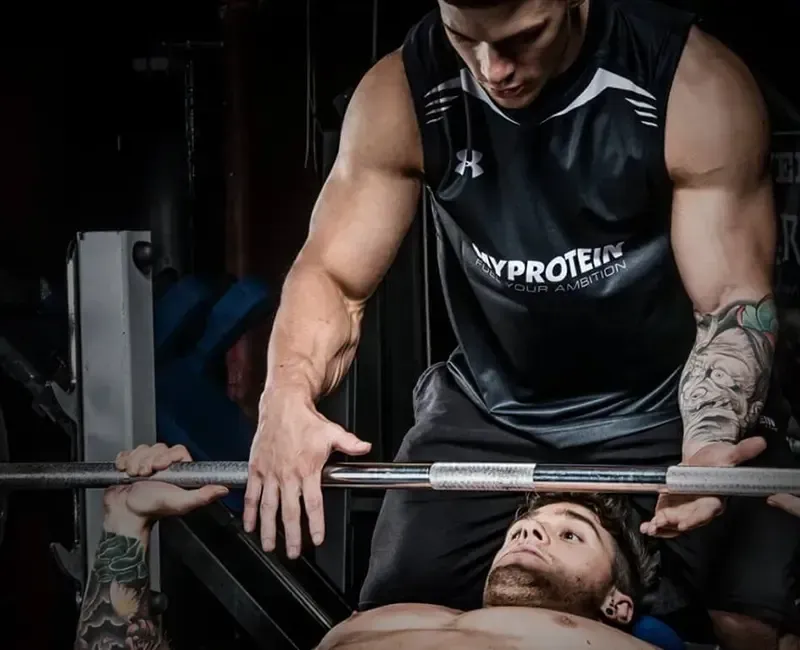





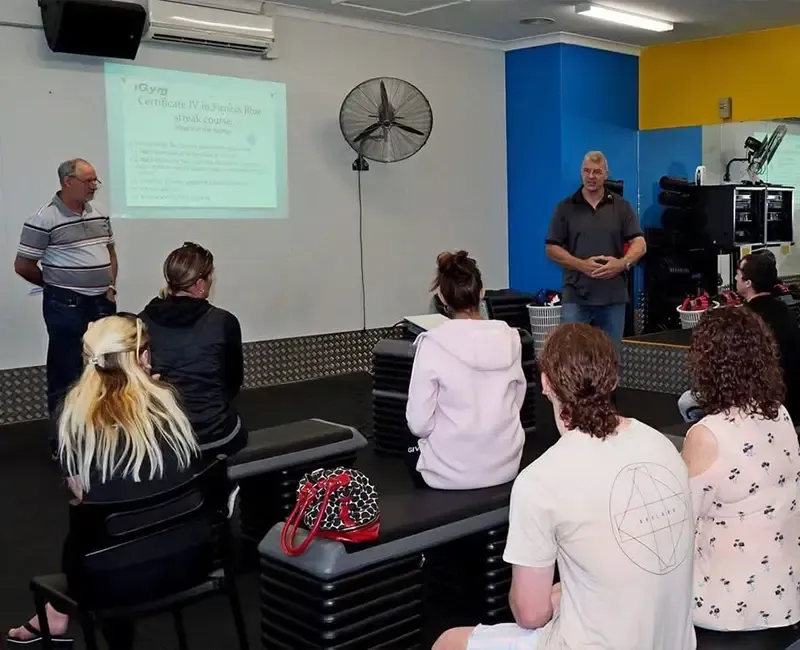
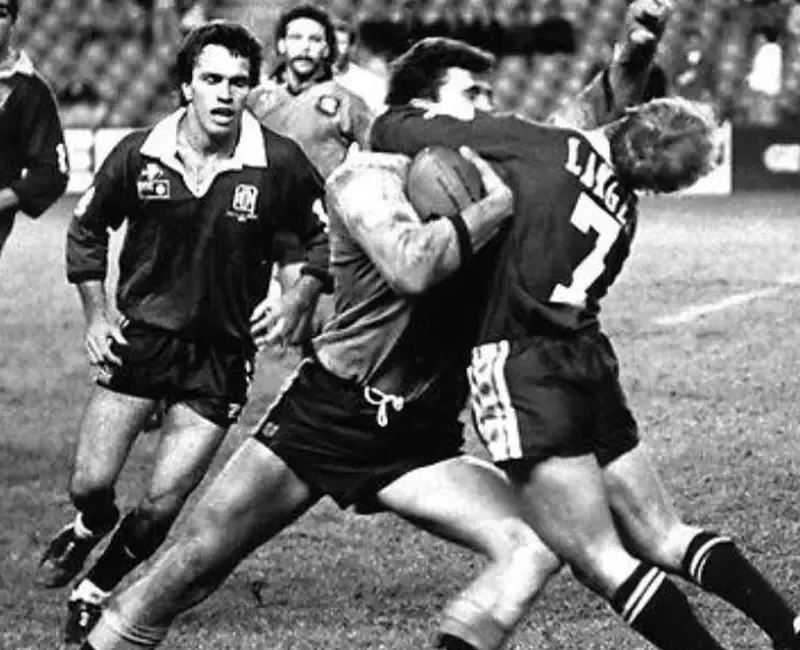

© 2025 Mark McGaw Institute of Sports Science All rights reserved.
RTO #91205
ABN # 81 072 086 063
Privacy | Terms & Conditions
Marketing by LiveSwitch












